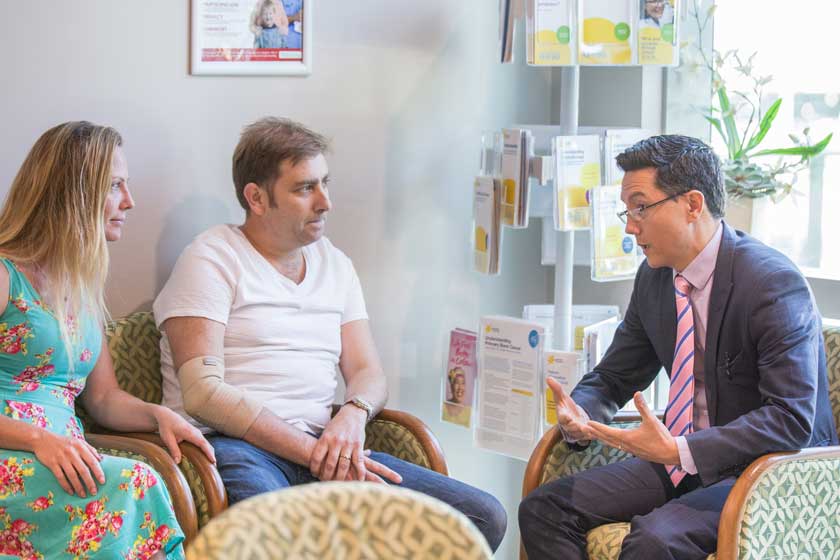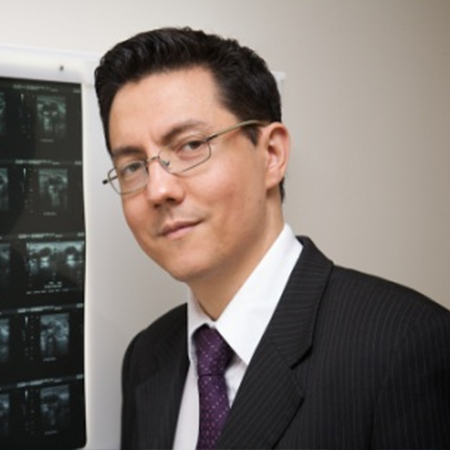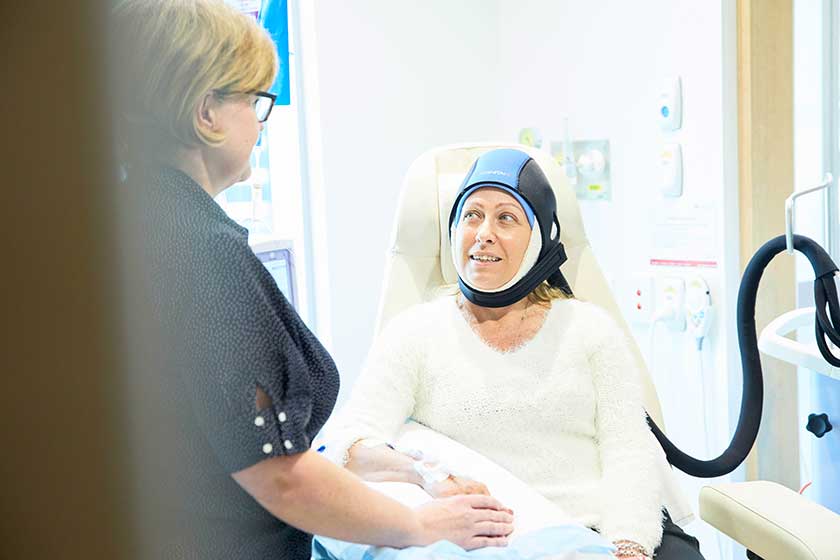When I was first trianing as a doctor, immunotherapy was still something a little on the fringe of conventional oncology.
Now immunotherapy is not only an exciting and growing part of oncological treatment, it’s a core part of our work.
What is immunotherapy?
Immunotherapy is a treatment that uses certain parts of a person’s immune system (a collection of organs, special cells and substances that help protect from infections and some other diseases) to fight cancer.
Cancer cells are abnormal cells that should not exist in the body. They grow and spread through sophisticated mechanisms to avoid recognition and attack from the body’s own immune system.
Immunotherapy works by helping the immune system to target and destroy cancer cells.
Who can benefit from immunotherapy?
Already, immunotherapy treatment is proving to be an effective treatment for some patients with melanoma, lung and oesophageal cancers.
We are undertaking a number of new studies using next generation immunotherapy combinations, some of which will be used in large numbers of patients for the first time in Australia and the world.
After only six weeks on our compound treatments, which help the body recognise and fight cancer cells, a cancer once diagnosed as terminal is completely undetectable on a scan.
It is an exciting time to be an oncologist, when you can transform a previously terminal cancer into one that can be put into a remission state using the body’s own intrinsic protection systems.
Another next step is to trial these compounds on patients following tumour removal surgery, to try and prevent recurrence or spread in the way that you would usually use chemotherapy after breast or colon cancer.
Are there any side effects of immunotherapy?
All treatment, including immunotherapy, can have side effects, although the more recent immunotherapies tend to be less severe than those that occur as a result of chemotherapy.
The next exciting challenges in research for patients include new agents targeting different aspects of the immune system, combinations of therapies and trying to work out why some patients do or do not respond to immunotherapy.
That way we can turn the minority of people who do have ‘long-term disease control’ into the majority.
Photo credit: The West Australian










